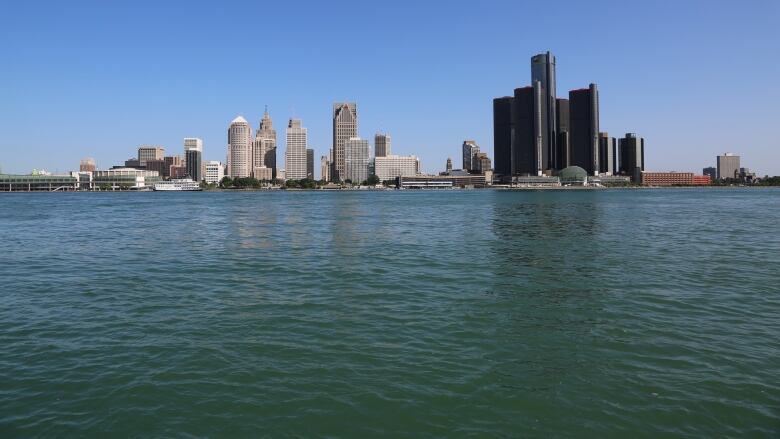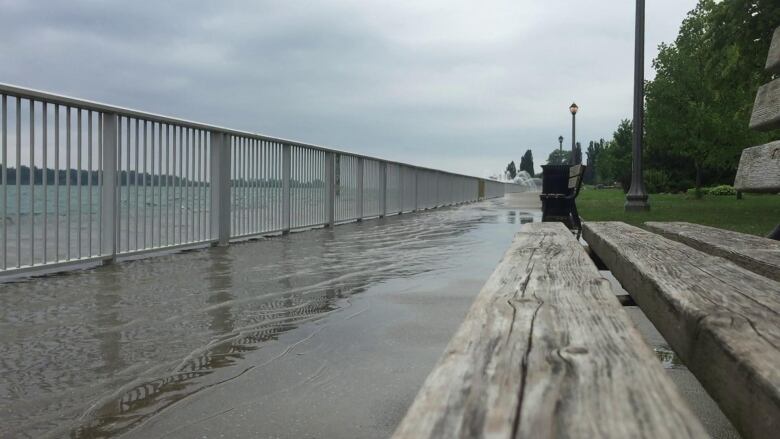Windsor Port Authority extends Detroit River 30-metre shoreline ban for 30 days
City officials will reassess the ban on Sept. 6, 2019

The Windsor Port Authority (WPA) has extended the 30-metre shoreline ban along the Detroit River for another 30 days.
The ban was originally set in place to regulatepassenger and commercial boats as a means of minimizing shoreline damage.
WPAharbourmaster Peter Berry said the ban was extended because high water levels in the region failed to recede between July and August.
"The water level still for Lake St. Clair is equal to what it was in July, where we were hoping for it go down in the month of August," said Berry.
He added that the city's port authority will consider extending the ban for another days on Sept. 6, 2019.
"If the high water is still affecting residences [and] infrastructure, we will go another 30 days," said Berry.
As per the terms of the ban, passenger or commercial boats found within 30 metres of the shoreline are given a warning as a first strike.

Passenger boats found in violation a second time can receive a fine of up to $5,000. Commercial boats found in violation twice can receive a fine of up to $50,000.
Berry said he personally called each tour boat company that operates in the area to inform them about the 30-metre shoreline ban.
Approximately 40 private boaters have been asked to comply with the shoreline ban since July 20, but no boaters have been found in non-compliance twice.
"What we are seeing is typically the one warning is more than enough to tell them that we need you to remain 30 metres offshore," said Berry. "We haven't had the need to go through a forced compliance. We've had a good, strong voluntary compliance, which is ideally what we're looking for."
Berry explained that the ban isn't intended as an attack against boaters, but rather a way of mitigating shoreline damage.
"It's not that we want to go to court," he said. "We would much rather have it that people would comply and go along with us."
Speed limit difficult to enforce
Before the City implemented its shoreline ban, council passed a motion seeking the implementation of a speed limit reduction or the establishment of a no-wake zone along the Detroit River.
According to Berry, however, the speed limit enforcement would have proven to be more trouble than it's worth.
"Radar doesn't work, LIDAR doesn't work," said Berry. "You're based on the education, training [and] experience of a police officer saying 'In my 10 years, in my 20 years, five years of being a police officer, I believe this boat was speeding greater than 10 km/h,' [and] that's very difficult to defend in court."

Additionally, if officers were to rely on their own speed gauges to determine the speed of boaters keeping pace with boats potentially exceeding the speed limit they would end up causing damage as well.
"We felt that if we did a no-go zone and excluded people from getting close regardless of the speed outside of that zone, we can at least try to mitigate the damages that come from that," said Berry. "This was not a decision we came to lightly."












_(720p).jpg)


 OFFICIAL HD MUSIC VIDEO.jpg)
.jpg)



























































































